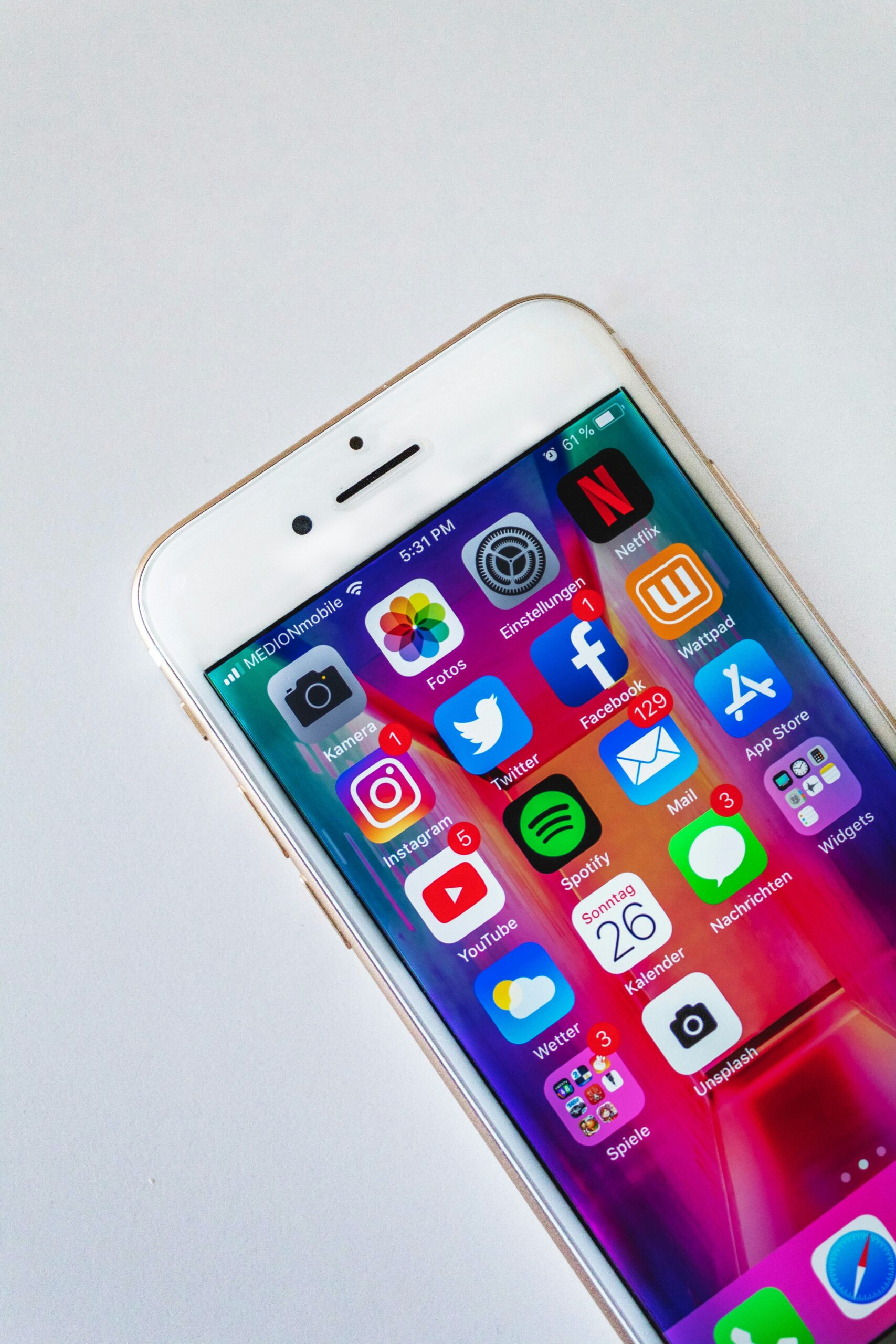

The Impact of Social Media on Car and Bike Sales in Pakistan
Social media has revolutionized the way people interact and connect with each other, and it has also transformed the way businesses operate. In Pakistan, the automotive industry has not been immune to the power of social media. With the increasing popularity of platforms such as Facebook, Instagram, and Twitter, car and bike manufacturers have recognized the potential of these platforms to reach a wider audience and promote their products.
One of the key benefits of social media for car and bike sales in Pakistan is the ability to target specific demographics. Through advanced targeting options, manufacturers can ensure that their advertisements reach the right audience. For example, if a car manufacturer wants to target young professionals who are interested in sports cars, they can create a targeted ad campaign that will only be shown to this specific group of people. This level of precision targeting was not possible with traditional advertising methods, making social media a powerful tool for reaching potential customers.
In addition to targeted advertising, social media also allows car and bike manufacturers to engage with their audience on a more personal level. Through platforms like Facebook and Instagram, manufacturers can share behind-the-scenes content, sneak peeks of upcoming models, and even interact directly with their customers through comments and direct messages. This level of engagement helps build brand loyalty and creates a sense of community among customers.
Another advantage of social media for car and bike sales in Pakistan is the ability to leverage user-generated content. Customers often share their experiences with their newly purchased vehicles on social media, posting pictures and writing reviews. This user-generated content serves as free advertising for manufacturers, as it showcases the positive experiences of real customers. Potential buyers are more likely to trust the opinions of their peers than traditional advertisements, making user-generated content a valuable asset for car and bike manufacturers.
However, with the benefits come challenges. One of the main challenges of using social media for car and bike sales in Pakistan is the need to constantly monitor and manage online reputation. In the age of social media, news spreads quickly, and negative experiences can quickly damage a manufacturer’s reputation. Therefore, it is crucial for manufacturers to have a dedicated team that actively monitors social media platforms and responds to customer feedback and complaints in a timely and professional manner.
Furthermore, the fast-paced nature of social media means that manufacturers need to constantly adapt and evolve their strategies. Trends change quickly, and what may be effective today may not be tomorrow. Therefore, car and bike manufacturers need to stay up-to-date with the latest social media trends and constantly experiment with new ideas and approaches to ensure they stay relevant and engaging to their audience.
In conclusion, social media has had a profound impact on car and bike sales in Pakistan. It has provided manufacturers with new opportunities to reach their target audience, engage with customers on a personal level, and leverage user-generated content. However, it also presents challenges that need to be managed effectively. As social media continues to evolve, car and bike manufacturers need to stay ahead of the curve and adapt their strategies to ensure they make the most of this powerful tool.
1. Increased Reach and Awareness
Social media platforms such as Facebook, Instagram, and Twitter have millions of active users in Pakistan. This presents a massive opportunity for car and bike manufacturers to reach a wider audience and create brand awareness. Through targeted advertising and engaging content, manufacturers can showcase their latest models, features, and promotions to potential buyers.
Moreover, social media allows manufacturers to connect directly with their target audience, engaging in conversations, addressing queries, and building relationships. This direct interaction helps in building trust and credibility, which are essential factors in the decision-making process of buying a car or a bike.
One of the key advantages of using social media for car and bike manufacturers is the ability to reach a highly targeted audience. These platforms offer advanced targeting options, allowing manufacturers to specify the demographics, interests, and behaviors of their ideal customers. This means that manufacturers can tailor their advertising messages to resonate with their target audience, increasing the chances of conversion.
In addition to targeted advertising, social media also provides the opportunity for organic reach. By creating engaging and shareable content, manufacturers can leverage the power of social media algorithms to expand their reach organically. When users engage with a manufacturer’s content by liking, commenting, or sharing, it increases the visibility of the content to their network of connections, potentially reaching a wider audience.
Furthermore, social media platforms offer various advertising formats that can be utilized by car and bike manufacturers to capture the attention of their target audience. From eye-catching image ads to immersive video ads, manufacturers can choose the format that best showcases their products and captures the interest of potential buyers. Additionally, social media advertising allows for precise tracking and measurement, enabling manufacturers to analyze the performance of their campaigns and make data-driven decisions to optimize their marketing strategies.
Overall, the increased reach and awareness provided by social media platforms offer car and bike manufacturers a powerful tool to connect with their target audience, build brand recognition, and ultimately drive sales. By leveraging the various features and capabilities of social media, manufacturers can effectively showcase their products, engage with potential buyers, and stay ahead of the competition in the ever-evolving automotive industry.
2. Influencer Marketing
Influencer marketing has gained significant traction in recent years, and it has proven to be a powerful tool for promoting products and services. In the automotive industry, influencers play a crucial role in influencing the purchasing decisions of potential buyers. They review cars and bikes, provide valuable insights, and share their experiences on social media platforms.
Car and bike manufacturers collaborate with influencers to reach their target audience effectively. By partnering with popular automotive influencers, manufacturers can leverage their credibility and following to generate interest and drive sales. Influencers often create engaging content such as videos, reviews, and comparisons, which help potential buyers make informed decisions.
One of the key advantages of influencer marketing is its ability to reach a highly targeted audience. Automotive influencers have a dedicated following of enthusiasts who are passionate about cars and bikes. These followers trust the influencers’ opinions and recommendations, making them more likely to consider the products endorsed by the influencers.
In addition to reaching a targeted audience, influencer marketing also allows car and bike manufacturers to tap into the influencers’ creativity and storytelling skills. Influencers have a unique ability to create compelling content that resonates with their audience. They can showcase the features and benefits of a particular vehicle in a way that is relatable and engaging.
Moreover, influencer marketing provides an opportunity for manufacturers to humanize their brand. By collaborating with influencers, they can establish a more personal connection with potential buyers. This connection goes beyond traditional advertising methods and allows consumers to see the brand as authentic and trustworthy.
Another advantage of influencer marketing in the automotive industry is its cost-effectiveness. Compared to traditional advertising channels, partnering with influencers can be more affordable, especially for smaller manufacturers or startups with limited marketing budgets. Additionally, influencer marketing offers a higher return on investment as it allows for more targeted and measurable campaigns.
However, it is important for car and bike manufacturers to carefully select the influencers they collaborate with. The influencers should align with the brand’s values and target audience. It is crucial to conduct thorough research and evaluate the influencers’ engagement rates, audience demographics, and previous collaborations before entering into a partnership.
In conclusion, influencer marketing has become an integral part of the automotive industry’s marketing strategies. By leveraging the power of influencers, manufacturers can effectively reach their target audience, create engaging content, humanize their brand, and achieve a higher return on investment. As the influence of social media continues to grow, influencer marketing is expected to play an even more significant role in shaping consumer behavior and driving sales in the automotive industry.
3. User-generated Content and Reviews
Social media platforms provide users with the opportunity to share their experiences, opinions, and reviews about cars and bikes. This user-generated content plays a significant role in influencing the purchasing decisions of potential buyers. People often rely on the experiences of others before making a substantial investment in a vehicle.
Car and bike manufacturers can use user-generated content to their advantage by sharing positive reviews and testimonials on their social media channels. This helps in building trust and credibility among potential buyers. Additionally, manufacturers can address any negative reviews or concerns raised by users, showcasing their commitment to customer satisfaction.
Furthermore, user-generated content can also serve as a valuable source of feedback for car and bike manufacturers. By monitoring and analyzing the reviews and opinions shared by users, manufacturers can gain insights into the strengths and weaknesses of their products. This feedback can then be used to make improvements and enhancements to future models.
Moreover, user-generated content can also provide manufacturers with valuable market research data. By analyzing the trends and preferences expressed by users, manufacturers can identify emerging market demands and tailor their marketing strategies accordingly. This enables them to stay ahead of the competition and meet the evolving needs of their target audience.
In addition to influencing purchasing decisions and providing feedback, user-generated content can also contribute to the overall brand image and reputation of car and bike manufacturers. Positive reviews and testimonials shared by satisfied customers can help create a positive perception of the brand, attracting more potential buyers. On the other hand, negative reviews can be seen as an opportunity for manufacturers to showcase their commitment to customer satisfaction by addressing the concerns and resolving any issues that may arise.
In conclusion, user-generated content and reviews play a crucial role in the automotive industry. They not only influence purchasing decisions but also provide valuable feedback, market research data, and contribute to the brand image and reputation of car and bike manufacturers. Therefore, it is essential for manufacturers to actively engage with and leverage user-generated content to maximize their marketing efforts and enhance customer satisfaction.
4. Online Sales and Booking
Social media platforms have also become a popular channel for online sales and booking of cars and bikes. Manufacturers and dealerships often provide a seamless buying experience through their social media pages. Users can browse through different models, compare features, and even book a test drive or make a purchase directly through social media platforms.
This convenience offered by social media platforms eliminates the need for potential buyers to visit physical showrooms, saving time and effort. It also provides an opportunity for manufacturers to showcase their entire product range and offer exclusive online promotions and discounts.
Furthermore, social media platforms have revolutionized the way consumers interact with brands. Through these platforms, customers can directly communicate with manufacturers and dealerships, asking questions, seeking clarifications, and even negotiating prices. This direct line of communication not only enhances customer satisfaction but also builds trust and loyalty towards the brand.
Moreover, the online sales and booking process on social media platforms is often accompanied by detailed product descriptions, high-resolution images, and customer reviews. This wealth of information empowers potential buyers to make informed decisions, ensuring that they choose the right vehicle that meets their specific needs and preferences.
In addition, social media platforms provide a platform for manufacturers and dealerships to engage with their customers on a more personal level. They can share behind-the-scenes videos, customer testimonials, and even host live Q&A sessions to address any concerns or queries. This level of transparency and accessibility strengthens the bond between the brand and its customers, fostering long-term relationships.
Furthermore, the convenience of online sales and booking on social media platforms extends beyond just the initial purchase. Customers can also schedule service appointments, inquire about spare parts, and even get updates on the latest models and offers. This end-to-end experience ensures that customers feel supported and valued throughout their ownership journey.
In conclusion, the integration of online sales and booking on social media platforms has transformed the way consumers interact with automotive brands. It has made the buying process more convenient, transparent, and personalized, ultimately enhancing customer satisfaction and loyalty. As technology continues to evolve, it is likely that social media platforms will play an even more significant role in the automotive industry, shaping the future of car and bike sales.
5. Challenges and Limitations
While social media has undoubtedly revolutionized the way cars and bikes are marketed and sold in Pakistan, it also comes with its own set of challenges and limitations. One of the major challenges is the authenticity of information shared on social media platforms. With the rise of fake news and misinformation, potential buyers need to be cautious and verify the information before making a decision.
Moreover, the influence of social media can sometimes lead to impulsive buying decisions. The constant exposure to advertisements and promotions can create a sense of urgency and desire, leading buyers to make hasty decisions without thoroughly evaluating their options.
5.1. The Challenge of Authenticity
The authenticity of information shared on social media platforms is a significant concern when it comes to buying cars and bikes. As social media has become a breeding ground for fake news and misinformation, it is essential for potential buyers to exercise caution and verify the information they come across. This can be particularly challenging when it comes to evaluating the condition, history, and pricing of used vehicles.
Buyers should be aware that not all information shared on social media can be trusted. It is crucial to cross-reference the details provided with reputable sources, such as official dealership websites, trusted automotive forums, and independent reviews. Additionally, buyers can reach out to industry experts or consult with knowledgeable friends or family members who have experience in the automotive field.
By taking these extra steps to verify the information, potential buyers can ensure that they make informed decisions and avoid falling victim to scams or purchasing vehicles that do not meet their expectations.
5.2. Impulsive Buying Decisions
The influence of social media can sometimes lead to impulsive buying decisions. With the constant exposure to advertisements and promotions, buyers may feel a sense of urgency and desire to make a purchase without thoroughly evaluating their options.
Social media platforms are designed to capture users’ attention and create a sense of FOMO (fear of missing out). The use of vibrant visuals, persuasive language, and limited-time offers can make it difficult for buyers to resist the temptation of making an impulsive purchase.
To avoid falling into this trap, potential buyers should practice self-discipline and take a step back to evaluate their needs and preferences. It is crucial to conduct thorough research, compare different models and prices, and consider factors such as budget, reliability, fuel efficiency, and maintenance costs.
Furthermore, buyers can benefit from seeking advice from trusted sources, such as automotive experts or experienced individuals who have gone through the buying process. By taking a more measured and informed approach, buyers can ensure that their decision aligns with their long-term goals and preferences.
In conclusion, while social media has revolutionized the automotive industry in Pakistan, it is important to be aware of the challenges and limitations it presents. By being cautious of the authenticity of information and avoiding impulsive buying decisions, potential buyers can navigate the social media landscape effectively and make informed choices that best suit their needs and preferences.
Add a comment Cancel reply
Categories
- automobile (1)
- Automotive (32)
- Automotive Industry (2)
- Automotive Safety (1)
- Car Brands (1)
- Car Buying (1)
- Car Reviews (1)
- Clean Energy (1)
- Marketing (1)
- Motorcycles (1)
- Trade Agreements (1)
- Transport & Mobility (1)
- Transportation (2)
- Travel (2)
Recent Posts
About us












